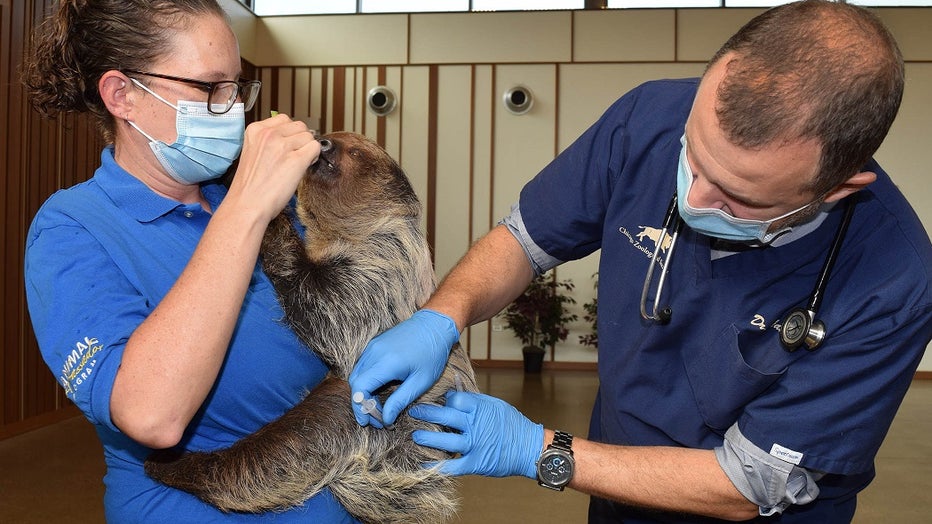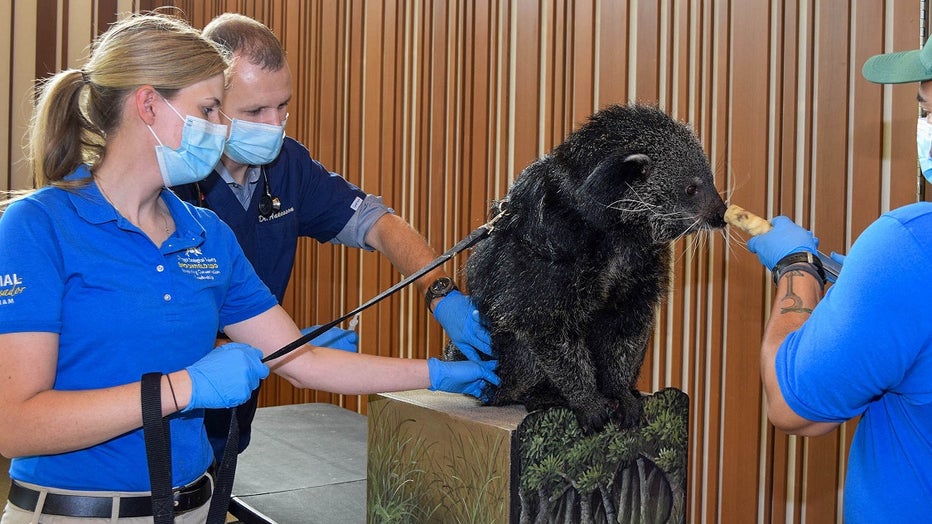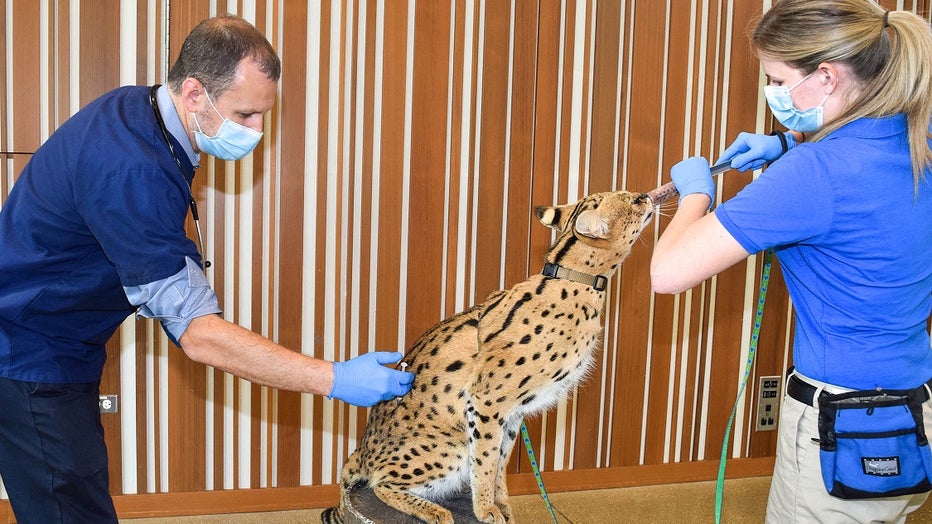Brookfield Zoo animals begin receiving COVID-19 vaccines
BROOKFIELD, Ill. - Some animals at the Brookfield Zoo on Tuesday received their first dose of the COVID-19 vaccine.
Veterinarians are first vaccinating animals that are known to be more susceptible of contracting the novel coronavirus.
"The health and well-being of the animals at Brookfield Zoo is always our leading priority, and the threat of COVID-19 to humans and animals is interconnected," Dr. Mike Adkesson said in a statement. He is the vice president of clinical medicine for the Chicago Zoological Society, which manages Brookfield Zoo.

Francine Lescher, a senior animal care specialist, holds T-Mo, a Linnaeus’s two-toed sloth at Brookfield Zoo, while he receives a COVID-19 vaccine administered by Dr. Mike Adkesson, vice present of clinical medicine for the Chicago Zoological Society
The vaccine the animals received was donated by animals health company Zoetis.
The Zoetis COVID-19 vaccine was uniquely made for animals. Researchers applied years of experience developing other vaccines for animals to create this COVID vaccine.
Like humans, the animals will receive two doses.

Sandy, a binturong at Brookfield Zoo, receives a COVID-19 vaccine administered by Dr. Mike Adkesson, vice president of clinical medicine for the Chicago Zoological Society, and assisted by Maggie Chardell and Craig Stevens, lead animal care specialis
"We know a variety of animal species can transmit and become sick from coronaviruses. Vaccinating animals is not only important for their own health, but healthy animals help keep humans healthy too," Adkesson said.
Animals who are first set to get vaccinated are primates, small carnivores, the zoo’s animal ambassadors, big cats and bears.
The zoo’s western lowland gorillas and Rodrigues fruit bats will be vaccinated this falls. Once that happens, the zoo’s Tropic World: Africa section and Australia House will reopen to the public.

Kyan, one of Brookfield Zoo’s servals, receives a COVID-19 vaccine from Dr. Mike Adkesson, vice president of clinical medicine for the Chicago Zoological Society. He is assisted by Maggie Chardell, a lead animal care specialist. Due to the respectful

